Fashionably Late
OK, it’s mid-June. I think it’s time to wrap up my 2020 retrospective with this bumper-sized final installment!
Let’s suppose over the next few years that some of the biggest publishers of fiction do make the switch from a business-2-business model to one in which they sell direct to the consumer. Additionally, some will develop digital subscription services. In other words, Disney+ for books.
What does that mean?
For publishing. For science fiction and fantasy publishing in particular.
And what might it mean for me?
Let us speculate.
A Third Class: Digital-First Authors
The gulf between the big international bestsellers and everyone else will become even more stark. In order to persuade readers to come to their platform, super big publishers need those marquee authors.
Big publishers have become more adept these last few years at monetizing their backlists, through digital channels. This accelerated in the pandemic years. Not just eBooks but audiobooks and print-on-demand paperbacks. This trend will continue very strongly. That deep backlist will be a big reason why readers will choose to stay in the subscription services.
Since the Second World War, there’s long been the distinction between “frontlist” authors who were released in hardback first, and lesser authors who are released in paperback first. (These days eBooks are usually launched at the same time as the initial print edition. If there’s a hardback, then the eBook is priced to match the hardback.).
That won’t change, but I think we’ll see a rank of even lesser authors become more common. These will be the digital-first authors (which is not the same as eBook-first authors).
Not only will their new releases not come out in hardback, but the paperback will be a print-on-demand version (which is what my paperback novels have always been). It may seem strange to describe paperbacks as digital. Obviously, the end product is physical, but major publishers are already using Ingram Lightning Source print-on-demand to cover sudden spikes in paperback and hardback sales that could potentially occur anywhere in their backlist. And they’re using initiatives such as Open Road Ignition to monetize their digitized back catalog.
Anyway, back to our new class of second-class authors. They will primarily be sold by the direct-to-consumer online sales channel and not through bookstores (same as me).
For these authors, success at the launch of a book won’t be the all-or-nothing of recent decades. Slow burn success will be much more common. Without the need for the publisher to manage print runs, distribution, and accessing shelf space in bookstores, releases will be much easier to project manage and the gap between finishing a book and having it available to buy will be shortened.
One of the most biting criticisms of OldPub is that they are slow and inflexible with their book releases.
I don’t buy into all the criticisms of OldPub, but this one is right on the nose.
Consider this. If I were to sign a three-book deal with Penguin Random House today, I don’t expect they would squeeze me into their release schedule until 2023 at the earliest. And then there would be one book per year. I probably wouldn’t know whether they would want me to write more in the series until 2024 or 2025.
Contrast that with the five-book deal I signed with Theogony Books last summer. The fifth book will be published on July 2nd. Twelve months after I pitched the idea, all five novels will be written and on sale.
Admittedly, I cheated. I’d already written one and a half of these books, but they will all have new artwork, be newly edited, have been run through beta teams etc.
As an author, it’s very useful for me to quickly get information on whether a new series is selling well. It gives author and publisher a chance to write more of something that readers are buying (If there’s more story to be told, that is. Readers are unforgiving of milking a dead horse – if you’ll excuse the mixed and slightly revolting metaphor).
As a reader, I won’t start a new book series until several books are available. Having to wait a year between releases ruins the point of having a series with shared characters. A series that releases a new book every month, for example, is a significantly higher quality reading experience over one that waits until you’ve forgotten most of previous book before releasing the next one.
And with so many books available at a click of a button, readers are far more demanding of quality than ever before. For a lot of us, a series that comes out once a year is no longer good enough. (Unless the series is already well established. Harry Dresden’s had a break for a few years, but that doesn’t seem to have done him much harm with his return in 2020).
With digital-only authors, the publishing schedule is decoupled from the logistical challenges of selling physical copies through physical bookstores. This is where NewPub has been dancing rings around legacy publishing for the past decade. But when OldPub embraces digital-first authors[1*], they will finally be able park their tanks on NewPub’s lawn.
The Empire strikes back.
If this works as I predict, will this ring the death knell of NewPub?
No.
Because the fundamental reason why NewPub has been so successful will remain unchanged.
The degree to which NewPub has seized the Anglo-American market share from OldPub in the last decade varies enormously across different segments of the book market.
NewPub hasn’t just seized market share; it’s also grown new audiences and even developed new subgenres. Science fiction romance, black urban and black romance, LGBT romance, military science-fiction and space opera, erotica of all descriptions: these have all grown. What connects these was the attitude from OldPub circa 2010: a combination of lack of interest, lack of understanding, and at times borderline contempt. For sure, most of the old major publishers did some of these things some of the time, but not with enough consistent quality or quantity to satisfy the audience demand.
A decade later and OldPub has tried to muscle in on these readerships with mixed results.
For science fiction in particular, the success has been limited. That’s why I don’t think any of these changes I’ve predicted will affect my career much. The structural changes will win OldPub new readers in some areas, but not in mine. Legacy publishing still doesn’t value these modes of writing or the readers who enjoy them.
And so readers will seek out books by authors and publisher who do value them.

The Shadow Charts.
Publishers don’t value potential readers?
As I read that back, I worry it might sound like hyperbole. I mean, really? Publishers don’t value people who buy books?
Yes, really.
Let’s delve into this a little deeper.
Consider the article I wrote in 2020 on The World of 99.
In my journey, viewed through the lens of 99p books, I looked at the Amazon UK bestseller chart for space opera and looked back at the publications of the British Science Fiction Association to see how many of the bestselling authors in the charts had ever been mentioned by the BSFA. Bestsellers from major publishers got reviewed. So did some local favorites, particularly Titan Books and Angry Robot. That’s about it.
To be clear. I like the BSFA. I think they do great work. I’m picking on them because I happen to know more about BSFA publications, not least because I used to be a member. Sometimes they did news publications too, but they have always produced extensive review publications for books published in the UK.
I’m sure you’d get the same results if you substituted Locus Magazine, newspapers such as The Guardian, or the review pages of any of the science fiction short fiction magazines.
If you look at most of the Amazon subgenre bestseller charts and tracked the authors who make frequent appearances (as I have been doing informally for years), it will soon become apparent that most of them are unknown to old school SF & F literary fandom, or to established outlets of what might describe itself as critical review, such as the various BSFA publications or Locus.
I have not the slightest doubt that here in the UK, most authors who have been successful enough to become full-time writers of science fiction or fantasy in the past decade have never been reviewed or mentioned by the BSFA, nor have they been approached to be guests of honor or panelists at old school conventions. [2*] The audience for these conventions simply don’t know who these authors are because they aren’t plugged into the world of science fiction and fantasy literature, only certain divisions of that world.
This matters. In my experience, people who work at the larger publishing companies share a similar taste in books to those who set themselves up as old school [3*] critics and commentators and tend to write for publications such as the BSFA. The reason these outlets don’t discuss the authors in the bestseller charts and their books is simply because they aren’t interested in them [4*]. I don’t think publishers will be either. They won’t have anybody on their staff who really gets them.
You see this very clearly in my current wheelhouse of space opera and military science fiction.
As I said earlier, even the major OldPub publishers publish military sf.
A lot of it is game or movie/TV tie-in, which is treated as almost an entirely separate form of literature. We’ll come back to that in a moment.
Most of the majors have a military sf slot that they quietly fill without making much of a splash about it. Take Ian Douglas, who has written some great mil-sf in that slot for Harper Voyager. His Star Corpsman books are well worth a look. This is military science fiction adventure with a contemporary twist but essentially played straight (by which I mean it isn’t trying to cast scorn on the genre).
And slots are how the major publishers view the world. We’ve got our Terry Pratchett slot filled. Check. Our obligatory mil-sf author slot. Check. Now, let’s move on and spend our time considering books we’re actually interested in…
Back to the scorn shown for tie-in books.
Case in point: one of my favorite authors is the marvelous Karen Traviss (her book The Best of Us was my standout novel of 2019). By my reckoning, in the past decade, she’s picked up more New York Times bestseller and USA Today bestseller entries than any other UK science fiction author. That’s 13 titles on the New York Times bestseller lists, including two at #1.
Drawing a direct line between these gongs and popularity or book sales has its problems, but on this one measure at least, Traviss is the most successful British science fiction author of the past decade.
Not merely the most successful amongst the women, but she beat all the men and anybody else too.
Have any of these New York Times bestsellers ever been mentioned by the BSFA?
No.
BSFA and British old school fandom has spent a lot of time in the past decade talking about the importance of championing fiction by women authors. Have they ever mentioned Karen Traviss and her phenomenal success both here and internationally?
Very little.
When I was in the BSFA, I don’t recall at the time our most successful female author being mentioned. When I put together a fancy hardback compendium of British military science fiction in 2015, I wrote several articles about contemporary British mil-sf authors and looked for review and commentary on Karen Traviss. I found from the BSFA an online transcript of a radio interview from 2011 and an online review of her first novels, which hadn’t been published in BSFA’s review publications because they were at the time published only in the US (which is perfectly reasonable).
Beyond that, the only mention I could find were spiteful tweets sent by prominent BSFA writers in response to that 2011 radio appearance. Ironically, the most abusive individual in this thread went on to create a website to highlight women authors… and then pour scorn on most of them for not writing the way that he, a man, desired. Really, you couldn’t make this kind of thing up, but it was this kind of rancid bigotry that led to me quitting British old school fandom.
Why am I banging on about tie-in books?
Because franchises such as Star Wars and Halo are dismissed as pale shadows of proper fiction, rather like superstore own brands compared with offerings from the likes of Heinz and Kelloggs. While a few Warhammer 40K authors are fêted at UK conventions, their publisher, Black Library, is not really regarded as a being ‘proper’ publisher.
Warhammer 40,000 is arguably Britain’s most successful ever science fiction literary brand, but as far as I can tell, none of its books has ever been reviewed by the BSFA and the setting was only mentioned once in this excellent article by Stephen Baxter. (Baxter was in my view by far the most accomplished and insightful of the article writers for the BSFA).
In other words, tie-ins can be safely compartmentalized by OldPub and old school fandom as distinct from ‘proper’ literature and then sneered at while publishers still making money out of them.
Many popular subgenres and authors — and, of course, their readers — are treated with open contempt. The only valid way to write in space opera and military science fiction in the minds of these people is to subvert the genre.
It’s a phrase that comes up constantly in the OldPub world. If I were to attempt to acquire a literary agent for my space opera or mil-sf in today’s environment, I would have to talk about how I ‘subvert the genre’ in my pitch. If I didn’t, I would be wasting everyone’s time.
To be clear, there’s nothing wrong in shaking things up to do something new. And if you don’t like something you perceive in a book or genre, then that can give the creative energy to write an inspired response. I’ve done both myself.
Iain M Banks, for example, was of the opinion that space opera was overwhelmingly written by right-wing American capitalists and imperialists. So he set off out to explicitly write a socialist space opera with his Culture novels. Very successfully in my view. Whether or not he was accurate in his assessment of space opera is immaterial, so long as it drove him to deliver the goods.
However, we are not talking here about an occasional attempt to try a new way.
New titles big up how they subvert what has gone before and show up their alleged flaws, and by implication the flaws of their readers.
These days those flaws are increasingly regarded as moral ones. I’ve lost count of the number of times I’ve encountered the ludicrous and insulting idea that space opera is merely the wish fulfilment of right-wing, fascist, Americans. Bad people write these books; bad people read them.
Bad people like me. And if you’re here because you enjoy my books, in the eyes of these bigots, that means you are a bad person too.
I’ve personally had a one-star reviewer describe my books as (and here I clean up the language for general consumption) fascist fantasies in which I rewrite history so that the American military wins a clear victory in Afghanistan, relishes killing a lot of brown foreigners, and saves the Middle East for a rapacious American oil industry.
Excuse me… what?!?!
This was for the Human Legion books. If you’ve read them, you’ll know how utterly ridiculous that comment was. But the reality is that we are in the middle of a culture war, and increasingly being neutral is not an option. This reviewer had probably spent years soaking up the hatred and contempt so often expressed for space opera that doesn’t flag itself as subverting the genre. I doubt they bothered to read my book. More likely, they saw the cover, slotted me into their perverted narrative, and decided that I was an evil person who had to be canceled.
In the past few paragraphs, I’ve been writing about space opera science fiction because they are the subgenres I know very well. But this phenomenon of publishers who do not understand their own audience, or who view their customers with scorn, is not limited to these sub-genres.
Wherever you find self-publishing and NewPub have been successful, you will find the underlying reason is that traditional publishing disdains books and readers in these areas.
And that is ultimately why if OldPub moves successfully to subscription models and a direct-to-consumer mindset, then the effect on my ability to earn a living as a science fiction writer will be limited, so long as I stick to sub-genres where OldPub is institutionally incompetent.
After all, who wants to read books published by people who hate you?

Rambler’s End
At the start of this trio of “New Year’s” ramblings, I posed the question of how was it that I had been able to make writing and publishing science fiction my livelihood for the past decade. (Admittedly only barely managing at times, but I know dozens of people who started out like me but have made far greater financial success).
NewPub brings with it enormous advantages in nimbleness, speed-to-market, a more audience-focused approach, and so forth. If my predictions are correct that OldPub embraces a direct-to-consumer mindset, I may lose some of those benefits, but I will retain the advantage of understanding my potential customers more than OldPub ever could.
Other authors may have a tougher time ahead. I think some of the legion of successful NewPub urban fantasy authors will have to fight hard to retain the sales they’ve claimed from OldPub. But not military science fiction and un-subverted space opera, which is where I write at the moment.
Sure, it will become more difficult to write outside of that field, something I want to do. However, I am so grateful for being able to do what I love for a living that I cannot reasonably complain about any such restrictions.
That’s not to say the future will be easy for anyone. For me, the principal competition for my readers’ time comes from my fellow NewPub authors. It is they who push me to improve my storytelling with each new novel because, frankly, that’s what they are doing, and I have to keep up. Readers’ quality expectations are rising higher with every year, and if I can’t satisfy them, there will be a wealth of other authors who will.
No one owes me a living as a writer. I have to earn it.
For me, it’s a good kind of pressure. It gives me a motivational buzz, and it’s clearly not just me.
Good science fiction books have been published in every year. But in the naughties, I found myself drifting away because so much of it was frankly mediocre. I grew tired of making allowances for sloppy writing, intellectually shallow grandstanding, and plots you could sail an Imperial star destroyer through.
Books I read now are much better written. So much more thrilling. Above all, it is the storytelling that has improved.
My contribution to this is extremely small, and yet it is there. I am proud to be a part of this trend.
And that leaves me with the prediction for the next few years of science fiction and fantasy of which I am most certain.
As a reader of science fiction, there is nowhere I would rather be than right here in the 2020s.

Footnotes
[1*] Digital-first.
I’m suggesting that the major publishers (other than Amazon Publishing) might transition from a mix of hardback-first and paperback-first authors into hardback-first and digital-first.
That would be new. But several major publishers have already attempted a different kind of digital-first publishing over the past decade.
These were junior imprints run alongside existing imprints for which all titles would be digital first. This tended to mean eBook first and then possibly a limited-run paperback edition for bookstores. No audiobook. There were hints that success in these junior imprints could lead to promotion to the major imprints and at least one example I could find of a science fiction author who was promoted to the main Harper Voyager imprint. In other words, these would be slush pile feeder leagues.
I recall halfheartedly looking into submitting to Harper Voyager Impulse, who began publishing in 2014. At the time, it wasn’t obvious that the main Harper Voyager imprint was succeeding in establishing new authors who wrote in a similar genre to me. So how would a junior version of something that wasn’t very successful do any better?
These junior imprints would take the lion’s share of their authors’ royalties. What would they do in return that the authors couldn’t already do for themselves?
I hope some Voyager Impulse authors got the start they were looking for, but it wasn’t obvious anyone did.
When Impulse was running, I did check in a few times. The covers sometimes looked very cheap. The few covers I thought looked okay were using stock art, which I knew because I was using the same art! The Amazon sales rankings were unimpressive, although that could mean I wasn’t looking at the right moment in time.
More likely, the books just didn’t sell. I hope I’m wrong.
After three years, Harper Voyager Impulse went quiet. Checking up on them for this article, it seems the digital-first imprints were renamed One More Chapter. I think the romance digital-first imprint, Avon Impulse, did pretty well and the Avon type of titles now dominate One More Chapter. It looks from here like a success, but only for romance and some thrillers. Not for science fiction and fantasy, for which Harper Voyager seems to have abandoned the digital-first idea for the time being.
[2*] Most UK authors going full time aren’t known to the BSFA.
I want to point out that this shouldn’t be seen as authors whining because they’re feeling unfairly snubbed, if nothing else than because most professional UK science fiction and fantasy authors I know don’t appear to be aware of either the BSFA or of the old school fandom behind conventions. Clearly, this hasn’t been a barrier to their success.
As with everything in publishing, there are notable exceptions. For example, Chris Nuttall attends some old school conventions, but I suspect most people don’t know who he is, despite being one of the UK’s leading science fiction and fantasy authors.
Anne Charnock’s self-published A Calculated Life (2013) was picked up by Amazon Publishing’s 47 North, the ultimate NewPub publisher. Not only have her books been Amazon bestsellers ever since, but the author is prominent at British fandom conventions and in BSFA publications.
I met Anne briefly at Eastercon in 2016 and had a lot of questions I wanted to put to her. Unfortunately, our timetables frustrated our desire for a good chinwag, which I’ve always regretted. She seemed a very pleasant person, and A Calculated Life is an excellent read, the kind of book that richly rewards paying close attention and reading between the lines.
I can’t think of anyone besides Anne who ticks both boxes of going full time via NewPub and is also well known to the BSFA.
From experience, I understand that the question of what constitutes a full-time professional writer, can get heated. (I myself publish other authors, and in 2016 it was that income that kept me afloat financially). But if we’re considering authors who earn, say, at least three quarters of their income from book sales/ advances, then I can’t think of anyone besides Anne who ticks both those boxes.
If you know otherwise, tell me!
[3*] ‘Old school fandom’
I bandy this term around a lot, so I’d better explain what I mean.
As a working definition, I see ‘fandom’ as describing communities that form around a hobby or pastime. In other words, when you go out and interact with other people who enjoy the same thing as you, that means you are a part of fandom for that thing.
If you play board games with friends and family, that’s just enjoying your pastime. But if you also read, comment on, and write game reviews at boardgamegeek.com, or sign up to your local Blood Bowl league (as I’m about to do) then you are committing fandom.
When I write ‘old school UK science fiction and fantasy fandom’, I mean a loose collection of clubs and conventions with origins in the 1930s. It’s pretty much a parallel story to what happened over that period in the US and elsewhere, although more concentrated.
Today, it centers around the British Science Fiction Association, British Fantasy Society and Eastercon and Fantasycon conventions, though there are plenty of other components, such as the Arthur C. Clarke Award. In size, I estimate it comprises somewhere around 2,000-3,000 individuals.
Confusingly here (as in the US), it refers to itself as ‘fandom’ without prefix or qualification, even though it’s fairly small.
To put size in perspective, I went to the Salute tabletop wargaming exhibition in 2014, at ExCel, London. I don’t know the attendance, but for 2013 it was 14,000. Half the exhibits were science fiction or fantasy and none of them were connected with Warhammer or 40K. All those attendees were engaged with fandom, and the science fiction themes seemed to me to be getting the most buzz.
This was, of course, a form of science fiction and fantasy fandom, and with headline numbers much larger than the old school literary variety.
The EGX game convention often heavily features science fiction; attendance for its 2017 event at the NEC, Birmingham was 80,000.
Doctor Who and Harry Potter fandoms are also hugely popular.
And so are Warhammer and Warhammer 40K. I just looked up current estimates of active 40K players and got answers of somewhere between 500,000 and a million. Certainly, the UK contribution to the Warhammer 40K flavor of science fiction fandom is much larger than old school literary fandom.
None of that is intended to minimize the worth or contribution of old school fandom, particularly in the way a core set of individuals organize and run conventions every year, which I find enormously impressive. There is also a strong link between old fandom and OldPub. Knowing the right fandom people and winning good reviews or awards can open doors in the OldPub industry.
However, I prefix this branch of fandom with ‘old school’ partly because it is only a small component of the SF&F fandom that extends beyond literature, but also because it is increasingly detached from what is going on elsewhere in literary science fiction fandom.
[4*] People who write for the BSFA aren’t interested in science fiction unless it’s ‘their’ science fiction.
I don’t say this lightly. When I was in the BSFA, I knew several senior figures who helped to run the club. I was tremendously excited about all the new authors coming out of nowhere and building our publishing niche by adding to the readership. Our backwater of publishing was undergoing a huge shake up and expansion. I couldn’t understand why no one else seemed excited by this.
For a while, I thought that because I was one of the few people in the UK who straddled both old and new publishing, I could help bring both tendencies together.
I thought authors acquiring a multi-million selling status would excite people, but that counted for nothing unless the author in question was the right kind of people writing the right kind of fiction through the right publishers.
I pointed out the new crop of British small publishers and thought others would want them to succeed. I remember when Swordworks hit a million sales. I thought that was exciting, but I couldn’t interest anyone.
That’s not to say that anyone in British old school fandom has done anything wrong in the slightest. Rather, my disappointment (which you can no doubt detect) stems from the desire to be a part of a community interested in the full diversity of science fiction literature. As I’ve written before, I wanted the BSFA publications to be the KERRANG! of science fiction, but its scope is narrowed to those segments of science fiction publishing that happen to interest a small inner group.
Perhaps that was always inevitable, but I hope that British old school fandom will one day embrace a more diverse perspective.






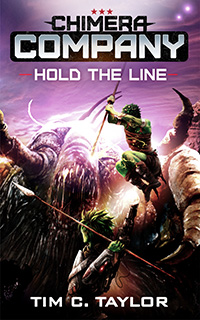
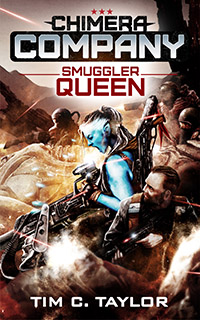

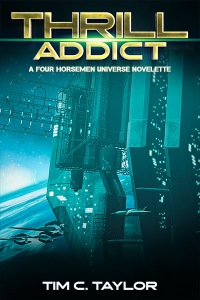
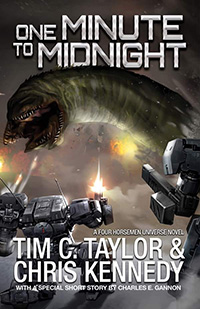
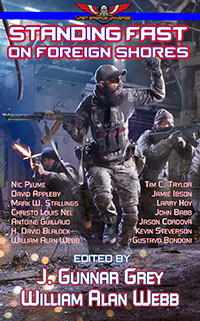

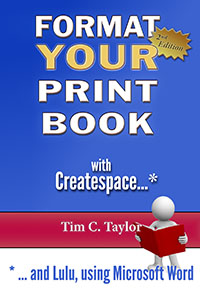

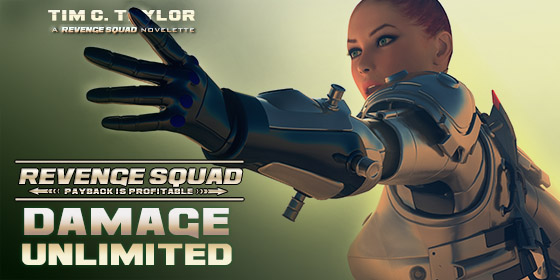

Hi Ashley. Thanks for your reply. Yes, it occasionally makes me sad. However, I do ask myself whether that’s justified. I wanted British fandom to be an inclusive community that supported and promoted SF in all its forms, the same as Kerrang! did with heavy metal and hard rock. Unfortunately, I found it was neither. Not in my time, anyway. I think I mourn what I wanted it to be rather than what it actually was.
And as you say, it’s increasingly irrelevant. I’ve enjoyed the conversations you and I have shared about this, that and the other. And seeing pictures of shiny metal things, sometimes painted. We had fun doing a podcast, if I recall. That’s all fandom stuff but entirely independent of the old fandom structures.
Your comment about seed cooperatives felt very apt, coming from a time when seeds were expensive and hard to get. I read the Wikipedia entry for the BSFA history, and its origins seem to come out of an era where SF literature was similarly expensive and hard to obtain. A key driver was swapping books and magazines between members. That makes a lot of sense to me. Now, of course, if I have my computer on, I can pick almost any book I want and be reading a free opening sample within 60 seconds.
Yeah, I’ve really enjoyed talking to you and the other guys on the podcast. Perhaps, we could talk again on zoom. Have a group chat about stuff. I only say this because I feel I lack peer contact, but I don’t want to be a burden just because I’m depressed (side-effect of medication I’m on, which makes me feel terrible).
Anyway, keep up the good work.
Peer contact is very important. I’ll see what I can rustle up.
Also, via my publisher, I’ve ended up being in Libertycon 33, which kicks off next Friday. This year it’s free and virtual. There’s going to be a Discord channel so you can chat while events are on. It’s five hours behind us, but I’m sure there’s plenty we can enjoy without resorting to those eye clamps from Clockwork Orange. If you’re interested, we could combine schedules and show these Americans how we do sci fi in old Blighty. The programming schedule isn’t up yet. I expect it within 48 hours, most likely. If you’re interested, let me know on Messenger.
As a nominal, maybe not that nominal member of British fandom, and like you a former BSFA member, and once upon a time, long ago, a regular attendee of fannish conventions, who went to an Eastercon a few years back, I echo what you say.
A fellow fan told me a story about seed cooperatives, which were once a thing back when seeds were expensive and hard to get. Again, a very long time ago. Now what few seed cooperatives that remain, if any, are remnants of a long lost age made irrelevant.
SF fandom as it once was is increasingly irrelevant. This makes me sad, but it is what it is.